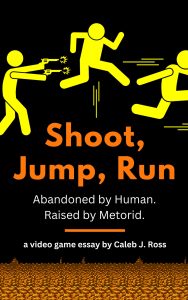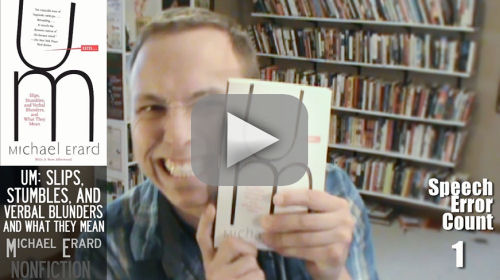 (If you'd rather read this essay on your Kindle, you can do so by clicking over to the Kindle store right now)
Shoot. Jump. Run. Samus Aran and I, we both came into existence this way.
For video game creator Yoshio Sakamoto, those three verbs described all he knew about the project he was told to create, a game that would become 1986’s Nintendo classic Metroid, a game that would seed a cherished series and inspire an entire video game genre. Sakamoto handled the responsibility of those verbs with dignity.
My father—never one to care about the gratification of others nor one to welcome responsibility—handled the experience of creating me with the same verbs, though in a different context: shoot (impregnate), jump (get dressed), run (leave).
Samus and I, we might as well be siblings, right?
(If you'd rather read this essay on your Kindle, you can do so by clicking over to the Kindle store right now)
Shoot. Jump. Run. Samus Aran and I, we both came into existence this way.
For video game creator Yoshio Sakamoto, those three verbs described all he knew about the project he was told to create, a game that would become 1986’s Nintendo classic Metroid, a game that would seed a cherished series and inspire an entire video game genre. Sakamoto handled the responsibility of those verbs with dignity.
My father—never one to care about the gratification of others nor one to welcome responsibility—handled the experience of creating me with the same verbs, though in a different context: shoot (impregnate), jump (get dressed), run (leave).
Samus and I, we might as well be siblings, right?
Tag Archives non-fiction
[su_note]UPDATE: After reading about the discovery of sperm, why not check out my other work? My main focus now is YouTube videos about video games. Check out my channel here: https://www.youtube.com/user/calebjross[/su_note] We take for granted the simplicity of procreation. Sperm + egg = baby. Sure there are superfluous operations often wedged within the greater formula, generally including + alcohol, - inhibition, or / legs (and in my case so many nights spent as the remainder), but there are three sex laws we have always been certain of, right? 1) Spermatozoon hunts for ovum, 2) ovum receives spermatozoon, and 3) sex leans toward brevity, both in the bedroom and in the dictionary (before shortening further to “sperm,” “spermatozoon” had seven additional syllables and drove a NYC taxi). But math isn’t so simple. Consider this: the number zero wasn’t always a thing. Think about that. There was a time when an adolescent me, charged with the question “so how many girls have you kissed?” would have been morally justified to simply shrug my shoulders and let implication lie for me. But those damn Babylonians had to invent the zero, making it impossible to ethically skirt not only pre-teen sex surveys (the unwritten entrance exam to so many cliques) but also slightly more important questions like “so how many sperms do you see?” “Zero” would no longer be an acceptable answer after Dutch amateur lensmaker and lonely guy Antonie van Leeuwenhoek combined his microscope-making hobby with his other hobby in 1677 to magnify some human ejaculate. Microscope + semen + zero = sperm!
 About one year ago I stopped writing fiction. Despite being very proud of my output (five books of fiction, dozens of short stories and essays) and despite developing a small but eager audience of readers who looked forward to my work, I stopped. No ceremony. No real reason (that I know of, anyway). One moment I considered myself a writer of fiction. The next moment I did not.
Why is this a problem? I have a collaborative novel (written with the amazing Nik Korpon, Richard Thomas, and Axel Taiari) to be published by Dzanc in 2015. Dzanc is a dream publisher, and the three aforementioned authors are dream collaborators. Luckily, I don’t need to be an active writer in order to promote the hell out of this forthcoming book (which I do plan on doing, so get ready world). However, I can’t help but think that with my dissolved passion for writing fiction, my promotional efforts may seem disingenuous. Imagine Aunt Jemima giving lectures to halls filled with syrup makers decades after she turned syrup warehouse into an airplane hanger.
About one year ago I stopped writing fiction. Despite being very proud of my output (five books of fiction, dozens of short stories and essays) and despite developing a small but eager audience of readers who looked forward to my work, I stopped. No ceremony. No real reason (that I know of, anyway). One moment I considered myself a writer of fiction. The next moment I did not.
Why is this a problem? I have a collaborative novel (written with the amazing Nik Korpon, Richard Thomas, and Axel Taiari) to be published by Dzanc in 2015. Dzanc is a dream publisher, and the three aforementioned authors are dream collaborators. Luckily, I don’t need to be an active writer in order to promote the hell out of this forthcoming book (which I do plan on doing, so get ready world). However, I can’t help but think that with my dissolved passion for writing fiction, my promotional efforts may seem disingenuous. Imagine Aunt Jemima giving lectures to halls filled with syrup makers decades after she turned syrup warehouse into an airplane hanger.
I’ve realized during my few months of video-making, along with my previous couple of years making podcasts, that I tend to break apart my speech with ums, uhs, ers, ahhs, and every other sort of cerebral flatus out there. A desire to break away from so many speech errors is one of the reasons I picked up Michael Erard’s book Um: Slips, Stumbles, and Verbal Blunders and What They Mean. My thinking was that if I could understand why I flub my words, then I could eventually eradicate those flubs. I’m likely beyond help, but at least this book did teach me that speech blunders are perhaps less something that needs to be cleaned away, and more something that we all need to approach differently. Speech errors aren’t, by themselves, errors at all. Instead, what’s important is measuring speech disfluency from a baseline. Think of reading ums and uhs as…




